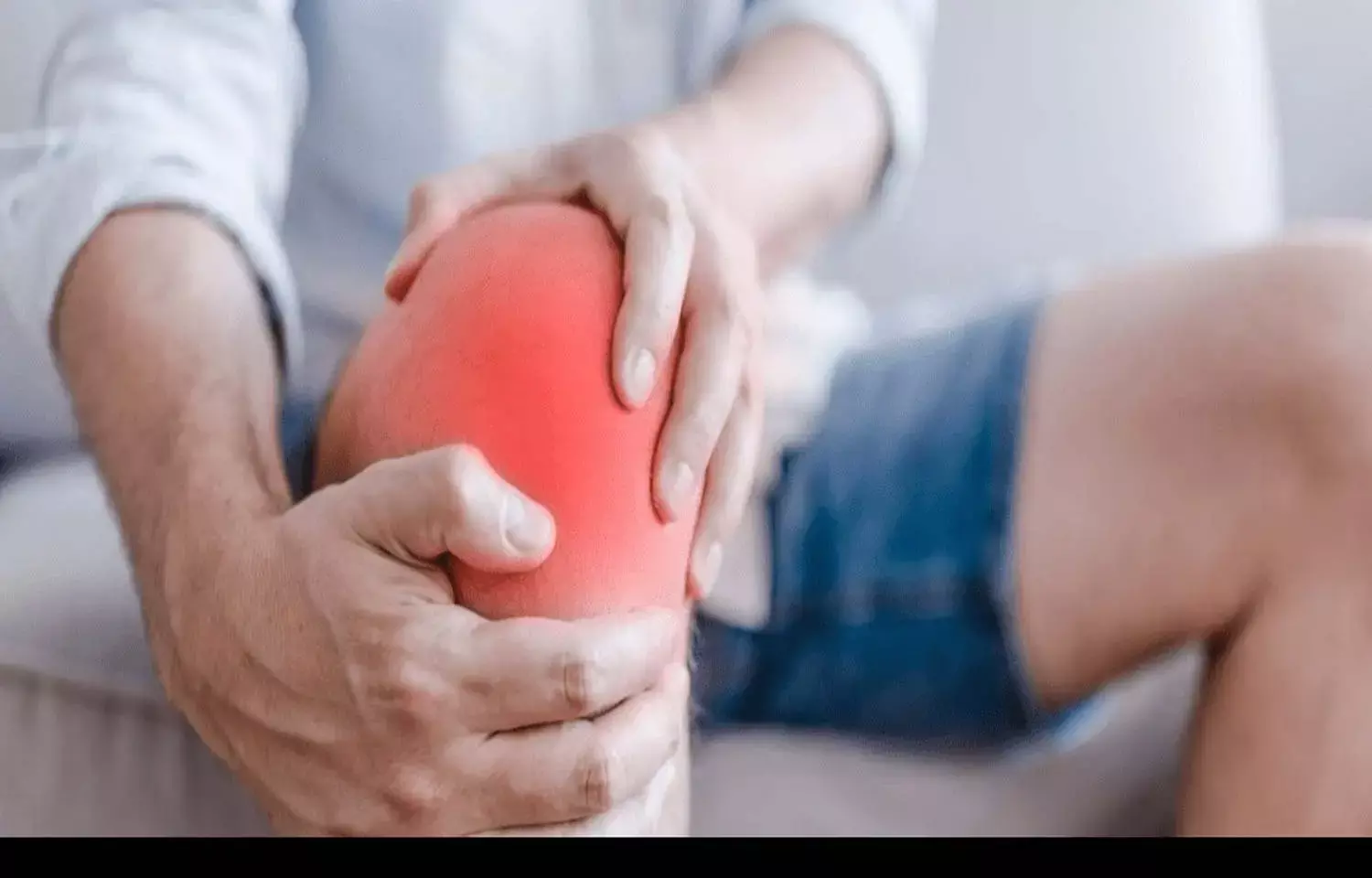- Home
- Medical news & Guidelines
- Anesthesiology
- Cardiology and CTVS
- Critical Care
- Dentistry
- Dermatology
- Diabetes and Endocrinology
- ENT
- Gastroenterology
- Medicine
- Nephrology
- Neurology
- Obstretics-Gynaecology
- Oncology
- Ophthalmology
- Orthopaedics
- Pediatrics-Neonatology
- Psychiatry
- Pulmonology
- Radiology
- Surgery
- Urology
- Laboratory Medicine
- Diet
- Nursing
- Paramedical
- Physiotherapy
- Health news
- Fact Check
- Bone Health Fact Check
- Brain Health Fact Check
- Cancer Related Fact Check
- Child Care Fact Check
- Dental and oral health fact check
- Diabetes and metabolic health fact check
- Diet and Nutrition Fact Check
- Eye and ENT Care Fact Check
- Fitness fact check
- Gut health fact check
- Heart health fact check
- Kidney health fact check
- Medical education fact check
- Men's health fact check
- Respiratory fact check
- Skin and hair care fact check
- Vaccine and Immunization fact check
- Women's health fact check
- AYUSH
- State News
- Andaman and Nicobar Islands
- Andhra Pradesh
- Arunachal Pradesh
- Assam
- Bihar
- Chandigarh
- Chattisgarh
- Dadra and Nagar Haveli
- Daman and Diu
- Delhi
- Goa
- Gujarat
- Haryana
- Himachal Pradesh
- Jammu & Kashmir
- Jharkhand
- Karnataka
- Kerala
- Ladakh
- Lakshadweep
- Madhya Pradesh
- Maharashtra
- Manipur
- Meghalaya
- Mizoram
- Nagaland
- Odisha
- Puducherry
- Punjab
- Rajasthan
- Sikkim
- Tamil Nadu
- Telangana
- Tripura
- Uttar Pradesh
- Uttrakhand
- West Bengal
- Medical Education
- Industry
Knee surgery cost-effective for osteoarthritis patients with severe obesity: Study

USA: Patients with severe obesity (BMI of 40 kg/m2 or greater) and end-stage osteoarthritis (OA) have high rates of complications post total knee replacement (TKR) surgery due to which surgeons often hesitate to perform the surgery. Now, a recent study published in the journal Annals of Internal Medicine, has found TKR surgery to be cost-effective in these patients.
Patients with obesity are at increased risk for knee osteoarthritis, more than 14 million people in the US are said to be obese. A growing proportion of patients who receive TKR are obese (BMI of 30 kg/m2 or higher).
TKR is shown to be very effective and cost-effective in non-obese patients with end-stage knee OA but it is not known if TKR is cost-effective in population with obesity and end-stage knee OA. Considering this, Elena Losina, Boston University School of Public Health, Boston, Massachusetts, and colleagues aimed to assess the value of TKR in recipients with a BMI of 40 kg/m2 or greater using a cost-effectiveness analysis.
The researchers used Osteoarthritis Policy Model for assessing long-term clinical benefits, costs, and cost-effectiveness of TKR in patients with a BMI of 40 kg/m2 or greater. Total knee replacement parameters were obtained from longitudinal studies and published literature, and costs from Medicare Physician Fee Schedules, the Healthcare Cost and Utilization Project, and published data.
It included people who were recipients of TKR with a BMI of 40 kg/m2 or greater in the United States. Outcome measures included cost, quality-adjusted life-years (QALYs), and incremental cost-effectiveness ratios (ICERs), discounted at 3% annually.
Key findings include:
- Total knee replacement increased QALYs by 0.71 year and lifetime medical costs by $25 200 among patients aged 50 to 65 years with a BMI of 40 kg/m2or greater, resulting in an ICER of $35 200.
- Total knee replacement in patients older than 65 years with a BMI of 40 kg/m2 or greater increased QALYs by 0.39 year and costs by $21 100, resulting in an ICER of $54 100.
- In TKR recipients with a BMI of 40 kg/m2 or greater and diabetes and cardiovascular disease, ICERs were below $75 000 per QALY.
- Results were most sensitive to complication rates and preoperative pain levels.
- In the probabilistic sensitivity analysis, at a $55 000-per-QALY willingness-to-pay threshold, TKR had a 100% and 90% likelihood of being a cost-effective strategy for patients aged 50 to 65 years and patients older than 65 years, respectively.
"From a cost-effectiveness perspective, TKR offers good value in patients with a BMI of 40 kg/m2 or greater, including those with multiple comorbidities," concluded the authors.
Reference:
The study titled, "The Value of Total Knee Replacement in Patients With Knee Osteoarthritis and a Body Mass Index of 40 kg/m2 or Greater: A Cost-Effectiveness Analysis," is published in the journal Annals of Internal Medicine.
DOI: https://www.acpjournals.org/doi/10.7326/M20-4722
Dr Kamal Kant Kohli-MBBS, DTCD- a chest specialist with more than 30 years of practice and a flair for writing clinical articles, Dr Kamal Kant Kohli joined Medical Dialogues as a Chief Editor of Medical News. Besides writing articles, as an editor, he proofreads and verifies all the medical content published on Medical Dialogues including those coming from journals, studies,medical conferences,guidelines etc. Email: drkohli@medicaldialogues.in. Contact no. 011-43720751


